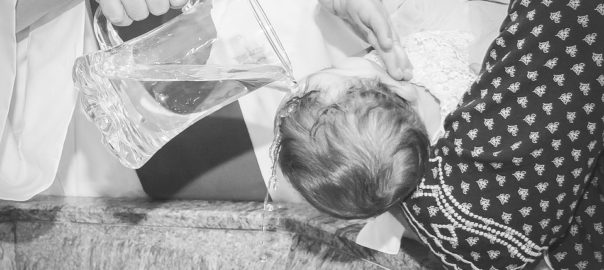B
While baptism was once an almost universal event in a child’s early life, the practice has become significantly less common in recent years, and if the current trend continues, it may well disappear entirely by 2041.
The increasingly secular nature of our society has undoubtedly been a major factor, but the most recent Church of England synod identified a number of other reasons for this seemingly terminal decline.
For instance, many clerics feel the solemnity and importance of the ceremony is being undermined by the increasing incidence of parents naming their children after the location in which they were conceived – and ministers who adhere to traditional orthodoxy are now refusing to baptise infants called Back-of-a-Renault-Clio, Aiya Napa, Alleyway-behind-Lidl, Alton Towers and the like.
The rise of allergies – particularly in London and the south-east, where they are compulsory for under-fives – has also been a factor, with potentially serious health risks associated with holy water, Honiton lace, spiritual angleberries and cassock fluff.
In addition, large numbers of fonts have been sold off as ornamental plant containers, leaving many churches with little option but to baptise children in washing-up bowls, empty grout buckets, colanders and shopping trolleys.
In an attempt to revive the custom, the Archbishop of Canterbury has appointed a number of well-known people as baptismal ambassadors and during 2018, a programme of interactive events will be hosted by Richard Dawkins, Little Ant & Dec, Donald Tusk and two former members of the Pussycat Dolls.

